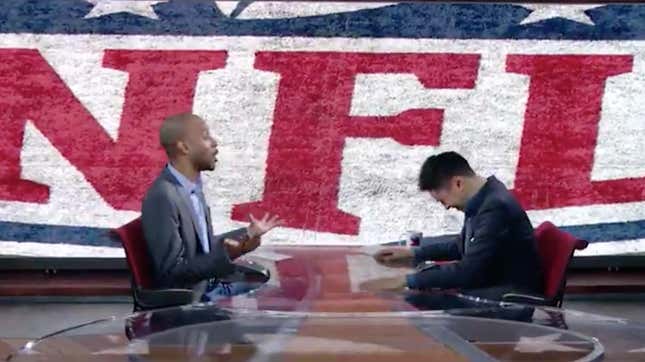
I know how to fix racism.
I’m not the only person with the cure for America’s unique strain of this social disease, nor have I kept this solution to myself. I have frequently outlined a complex procedure that could eliminate discrimination, institutional inequality and white supremacy in one generation. But just in case you’ve never read my sophisticated plan for stamping out systematic inequality, I will explain the procedure once more:
White people must stop being racist.
That’s it. It’s just that simple. This intricate method went through a collaborative, 400-year peer-reviewed process that concluded with black people shrugging their shoulders like an ophthalmologist talking to a patient who keeps poking themselves in the eyes but can’t figure out why their vision is so blurry. The answer to why racism persists is a complex question that only white people can answer. However, we already know the cure: White people gotta stop doing that.
The only reason this solution hasn’t been implemented is that anyone who publicly suggests this rational idea is accused of reverse racism, “playing the race card” or “race-baiting.” White people hate being labeled “white people,” so we must be mindful of their fragility when we discuss the system of supremacy that white people created, perpetuate and uphold. (As a master race-baiter, I never understood why this hobby is so disparaged. Why is everyone so concerned with what bait I use to catch racists?)
ESPN’s Bomani Jones eloquently articulated this inescapable reality on Wednesday’s episode of High Noon when talking about the NFL’s dearth of black coaches.
“At some point, in order for things to change, the guys who run the NFL have to care about what is going on,” he explained. “And the reason that they should care is not on some kumbaya level where they need to show the world that they care about diversity. The reason that they should care is that: Y’all aren’t good at finding head coaches! … So don’t ask me why it looks this way. Ask them why it looks this way.”
And by “them,” he meant “white people.”
Whenever racism is the topic, some people insist that the first step is having the proverbial “conversation about race.” But this flawed theory not only presupposes that black people haven’t been having this conversation, but instead of equality, the conversation oftentimes replaces equality as the actual goal. So, when Jones’ cohost Pablo Torre suggested that solving the problem required, in part, a level of introspection by the collective group of owners and general managers, Jones disagreed, explaining why the carefully couched language of passivity can lead to paralysis.
“I’m not asking for them to be introspective, I’m asking for them to stop,” Jones replied, blackity-blackly. “Even if you can’t figure out why it is that you are that way, you have demonstrated that you are. Why don’t you change something?”
He continued:
We’re not going to get to the bottom of this—or any other issue that matters with race—as long as we keep centering the feelings of white people when we talk about this. And if we keep talking about this in a way where we’re just trying not to hurt people’s feelings, then nothing is ever going to get done because the only way to fix this is to hurt people’s feelings.
Whenever this comes up, somebody calls me and they want to do an interview and they ask me: Well, what do you think we can do to change it?’ What the hell do you mean “we?”...We got [the] power to push them, except we don’t like to hurt white people’s feelings.White people need to hear this.
White people need to hear this.
Acknowledging one’s complicity in racism is supposed to be difficult. You can’t dismantle a system that offers you protection without exposing yourself to the elements. But if being called a racist hurts your feelings, you don’t want to know how much it hurts to experience actual racism.
Currently, there are only three black coaches in a league that is 70 percent black. The NFL’s fraternity of head coaches has never been more than 25 percent black and only once in the entire history of the NFL has a black coach been replaced by another black coach (In 2009, the Indianapolis Colts replaced Tony Dungy with Jim Caldwell).
To combat this problem, the NFL instituted the “Rooney Rule.” Named after former Pittsburgh Steelers owner Dan Rooney, the policy requires teams to interview at least one “diverse” candidate before they hire a head coach from outside their organization.
The season before the Rooney Rule came into play, 6 percent of the league’s head coaches were black. This year, the percentage is 9 percent. Maybe that’s the progress they were looking for.
Although Disney has not responded to our request to see if Bomani Jones will be “Jemele Hill’ed” when ESPN’s white viewers start complaining, The Root has received exclusive footage of Stephen A. Smith, who was backstage when Jones made the comments.

